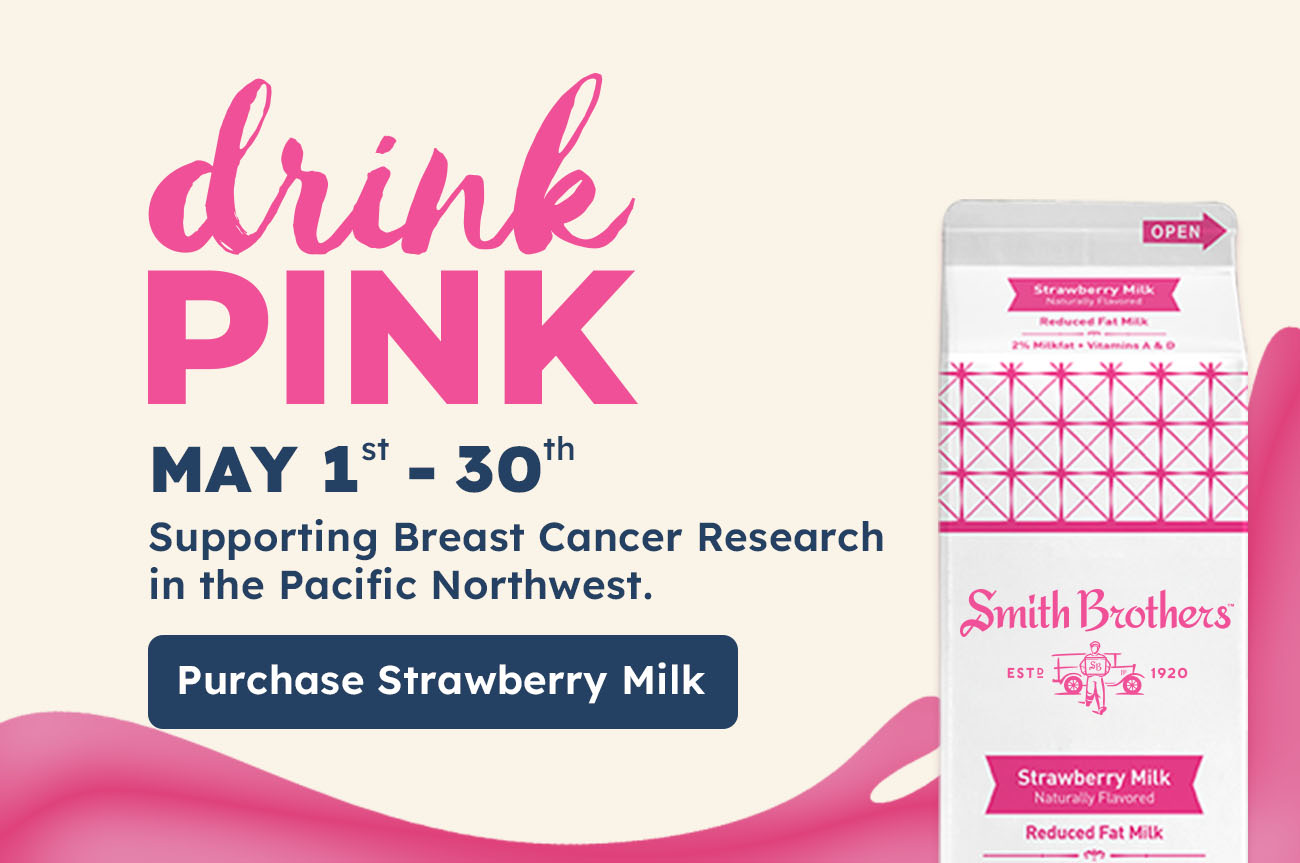Drink Pink: Fueling Breast Cancer Research in the Pacific Northwest
 Our Drink Pink campaign is back, and with it comes the return of our beloved strawberry milk. Drink Pink is our annual campaign that supports cancer research and prevention in the Pacific Northwest.
Our Drink Pink campaign is back, and with it comes the return of our beloved strawberry milk. Drink Pink is our annual campaign that supports cancer research and prevention in the Pacific Northwest.
Each May, we donate $1 for every quart of strawberry milk that’s purchased through our home delivery service. We started and continue to do this campaign in honor of the Smith family matriarch, our employees and customers, and their families who have been affected by cancer. With your help, we've raised an incredible $206,794 for cancer research and care since 2014, but we're not done yet! This year, our goal is to raise an additional $25,000 and we're asking for your help once again.
How You Can Help
Add a Quart (or More!) of Strawberry Milk
For every quart of strawberry milk that’s purchased through our home delivery service during the month of May, $1 is donated to Fred Hutch for cancer research. Add a quart to your Smith Brothers Farms delivery order today!
Make a Monetary Donation Online
In addition to purchasing strawberry milk, you can contribute to Drink Pink by making a monetary donation online. Select the amount you want to give of $1 or more.
Your online donation will contribute to the Family Assistance Fund at Fred Hutch. This fund, which is supported entirely by private donations, helps qualifying patients and their families with non-medical, everyday expenses such as groceries and child care. This support provides the tools and resources families need to find a measure of comfort and stability while navigating their cancer treatments.
Your Support Makes a Difference
Generous donations made through our Drink Pink campaign support leading breast cancer research in the Pacific Northwest. Our campaign is a heartfelt tribute to the Smith family matriarch, our dedicated employees, loyal customers, and their families who have all battled the brutal impact of cancer. We remain steadfast in our commitment to fighting this disease and having a positive impact on the lives of all those affected. But, we can't do it without YOU. We hope you'll join us in raising $25,000 to help beat cancer once and for all.
Together, Smith Brothers and our generous community are taking action to improve and save lives.
Thank you for your support!

